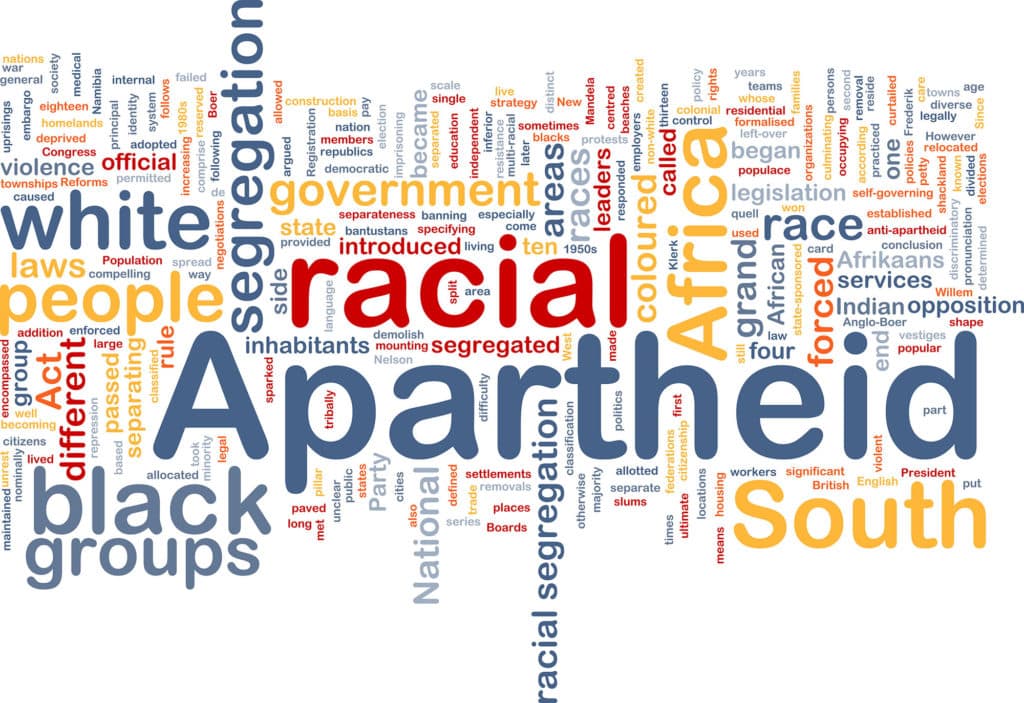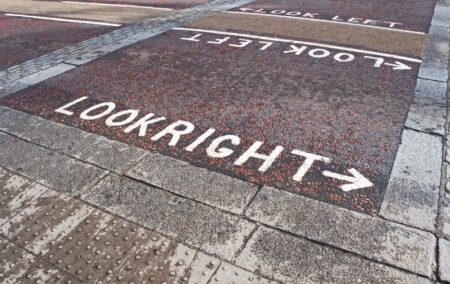According to recent criticism of the Institute for Race Relations, it ‘appears to be taking on the concerns and values of the American right wing’. If true, this charge would be very serious.
When Rebecca Davis penned her recent broadside against the Institute for Race Relations (IRR) in Daily Maverick, she made some curious claims.
‘An objection the think-tank has increasingly faced in recent years,’ she wrote, ‘is that the institute appears to be taking on the concerns and values of the American right wing: from opposing gun control to slamming Black Lives Matter and Critical Race Theory, both of which have been the subjects of SAIRR [sic] reports over the past year.’
Note that she wrote this in the passive voice, citing nobody. One can therefore conclude that this is her objection, and perhaps that of her peers, as opposed to a widespread objection that has been years in the making.
Being a strident member of the woke, left-wing majority in the media, it is not at all surprising that Davis considers the IRR to be ‘right-wing’. I would be offended not to be labelled right-wing by her, even though it is not at all true.
Pink
If, however, the IRR was intent on following American right-wing talking points, what’s up with its publication of a report on the power of the Pink Vote?
Written by Gerbrandt van Heerden, the report finds that political parties ought to actively compete for support from the LGBTQ community. He argues, correctly in my view, that Constitutional and legal protections have not always translated to actual benefits for this community, which remains marginalised and victimised throughout South Africa.
‘Pro-LGBTQ parties in South Africa should do more to engage with this vulnerable group in order to create a safe and more equal environment for queer people.’, he wrote, noting that championing LGBTQ rights, equality and freedom has a long tradition among liberal parties around the world.
What is right-wing about this position, one wonders?
Guns
Davis specifically cites ‘opposing gun control’ as one of the IRR positions that expose it as an ally of the ‘American right wing’. Yet the IRR does not ‘oppose gun control’ at all.
‘Gun control’ refers to legislation that aims to register firearms and licence firearm owners, with the aim of ensuring that only responsible, law-abiding, and competent citizens get to own firearms. Nothing the IRR has published on this subject argues against ‘gun control’.
Its position has nothing at all in common with the American right-wing position on firearms, and everything to do with the publication, by South Africa’s own police minister, ‘General’ Bheki Cele, of the Firearms Control Amendment Bill (to be read with the Firearms Control Act; see summary).
That Bill proposes to disarm everyone in South Africa who under the present dispensation legally owns a firearm for self-defence. It also proposes to prohibit most other civilian ownership of firearms.
Not only is the right to protect one’s life, liberty, and property from aggression a perfectly legitimate classical liberal position to take, but denying that right is problematic in a country in which the police are incapable of defending citizens against violent crime.
That this is so, is obvious even to Davis herself: ‘The events of the past week have caused even the likes of me, who previously did not have a libertarian bone in her body, to ponder the question: What, actually, is the point of a government?’ she wrote in the aftermath of the riots and looting in July. ‘What is the point of a government, when we know that it was private security and ordinary civilians who held the line this past week?’
Can we welcome you to the right wing yet, Rebecca?
Race
According to Davis, the IRR also no longer hews to its historical classical liberal principles on the matter of race, as evidenced by its opposition to the race-essentialist ideology of critical race theory. In support of this claim, she quotes Phila Msimang, a ‘philosopher of race’, saying that the IRR’s position relied on ‘1960s race-blindness’.
The IRR’s present position on race is to advocate for non-racialism, and to promote the idea that everyone ought to be equal before the law, regardless of race. It opposes racism and promotes redress for past wrongs inflicted on the basis of race. That was also its position in the 1960s and was its position ever since its founding in 1929.
Non-racialism is not some obscure, crypto-right-wing principle unique to the IRR. It is a Constitutionally enshrined founding principle of the democratic South Africa. It is the official policy of both the Democratic Alliance and the African National Congress. It is shared by struggle icons such as Nelson Mandela, Neville Alexander, and Robert Sobukwe. It has a long and respected history in South Africa.
Does Davis want the IRR to hew to its historical principles, or not?
(Don’t answer that. Of course she does not. She wants the IRR to jump on the ‘woke’ bandwagon in which the Marxist class struggle is replaced by a struggle between white male supremacy and various oppressed classes, all of whom demand and deserve preferential treatment as a result.)
Brookes fille
In her article, Davis extensively quotes Dr Heather Brookes, the granddaughter of Edgar Brooks, who was a co-founder of the Institute in 1929. Brookes fille makes several statements that go unchallenged by Davis.
She said: ‘The institute used to be a source of good, solid data on race and poverty and inequality. That is no longer the case.’
This contradicts the monthly and annual publication by the IRR (and its Centre for Risk Analysis division) of exactly that: solid data on race and socio-economic conditions. It also publishes frequent in-depth reports and analyses on particular socio-economic and public policy matters as well as formal submissions on proposed laws and regulations.
In addition, in The Daily Friend, it provides a platform for divergent (and sometimes conflicting) opinions from independent liberal-minded thinkers, in pursuit of the ‘battle of ideas’. These opinions do not necessarily reflect the positions of the Institute.
Brookes ‘noted with concern [the SAIRR’s] slide into the opposite of everything they originally stood for.’
This is trivially false. The IRR stood for classical liberal principles then, and it still stands for classical liberal principles now. It opposed the illiberal principles of the National Party then and opposes the illiberal principles of the ANC today.
The IRR is clear about its principles: ‘We stand for classical liberalism – an effective way to defeat poverty and tyranny through a system of limited government, a market economy, private enterprise, freedom of speech, individual liberty, property rights, and the rule of law.’
While anyone is free to differ with the Institute on any of these issues, the Institute has not in any way abandoned these positions.
It has always promoted non-racialism and reconciliation across racial lines. It opposed Apartheid, racial segregation, and racial discrimination then, and has certainly not taken the opposite view since.
Apartheid
This makes the ‘background concept wordcloud illustration’ that Daily Maverick chose to publish with Davis’s article all the more puzzling, since it appears to attribute to the IRR ideas and policies – such as Apartheid and racial segregation – that it has always vehemently opposed as inhumane, unjust, and irrational, and still does.

One can only suppose the Daily Maverick is trying to deliberately smear the Institute as racist, simply because the IRR offers some opposition to its own coverage, which has in recent years become increasingly supportive of eco-socialist ideas and the race-essentialist ideology of critical race theory.
There was a time when Daily Maverick was respected for publishing a wide variety of opinion, from across the political spectrum. That time has passed. While it still publishes the most odious racism from the extreme left of the political spectrum, its editor has become increasingly hostile to liberal, libertarian, or right-of-centre ideas.
Heritage
Davis goes to great lengths to try to insinuate a link between the IRR and the ‘American right wing’. Perhaps that is because the American right wing is easier to attack than the principled liberal ideas of the IRR itself, which are often not right wing at all.
Of all the American organisations with which the IRR might have links, she focuses on the Heritage Foundation, a conservative think tank that the IRR has no relations with whatsoever. Yet despite the clear and unequivocal denial by the IRR, she tries to insinuate that the Institute receives funding, and presumably direction, from the Heritage Foundation. Nothing could be further from the truth.
The IRR is transparent about its funding (unlike the Daily Maverick, one might add), and its major donors are all listed openly on its website and in its annual report. The Heritage Foundation is not, and has never been, among them.
Unlike the Heritage Foundation, the IRR is not a conservative organisation. Heritage does, however, produce some excellent research, especially on the subject of economic freedom.
That the IRR, or some of the writers loosely associated with it, from time to time rely upon such research when it coincides with their own liberal principles, should come as no surprise. That does not imply collusion with such an institution, or endorsement of all its positions.
The IRR could be accused of having the same non-relationship with any number of other international and local think tanks, such the Brookings Institution, the Hoover Institution, the Centre for Development and Enterprise, the South African Institute of International Affairs, the International Development Research Centre, the Competitive Enterprise Institute, the CATO Institute, the Hayek Institute, the Helen Suzman Foundation, the Frèdèrick Bastiat Foundation, the Foundation for Economic Education, the Fraser Institute, the Institute for Economic Studies, the Institute for Security Studies, the Mont Pelerin Society, the Reason Foundation, the Ludwig von Mises Institute, the Adam Smith Institute, the Free Market Foundation, the Independent Institute, and the Institute for Economic Affairs.
Only the Friedrich Naumann Foundation for Freedom has actually been among the IRR’s funders, and it is neither right wing nor American.
Why Davis has a bee in her bonnet about the Heritage Institute is anyone’s guess. There is no vast right-wing conspiracy here.
Damaging positions
Davis quotes Msimang to the effect that the IRR misleads the public and lobbies for ‘damaging positions’. That is an opinion one might also hold about the work of Davis and Msimang.
It is a hallmark of a free society that philosophical, political, and public policy disagreements can be openly ventilated, without falsely smearing an opponent as racist or otherwise beyond the pale.
When a hit piece, labelled not as opinion but as supposedly objective news analysis, is so riddled with elementary errors, one has to wonder for what vindictive purpose Daily Maverick published it.
To my mind, it says a lot more about Davis and the Daily Maverick than it says about the IRR.
(PS. Unlike Davis’s article, mine is opinion. As per the standard disclaimer below, I do not speak for or on behalf of the IRR. The IRR did not ask me to write this column, nor did it contribute to its contents in any way.)
The views of the writer are not necessarily the views of the Daily Friend or the IRR
If you like what you have just read, support the Daily Friend
Image by Andrew Martin from Pixabay

